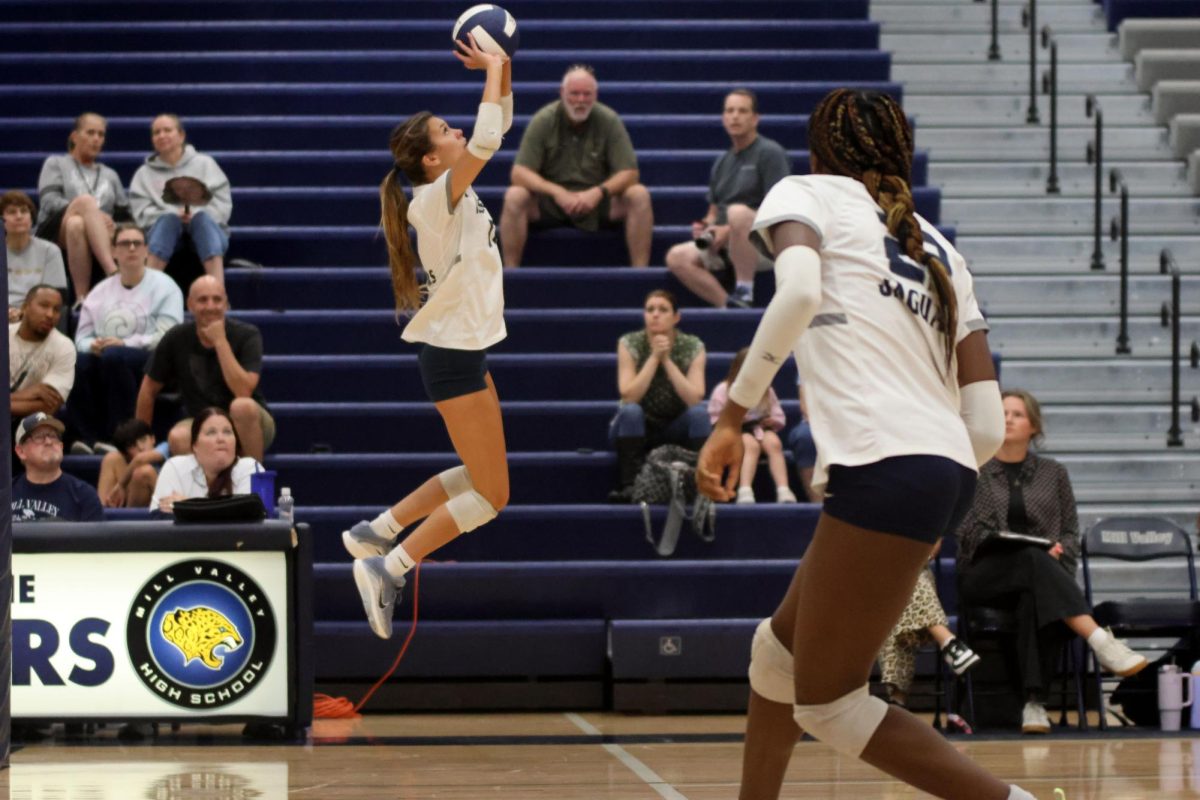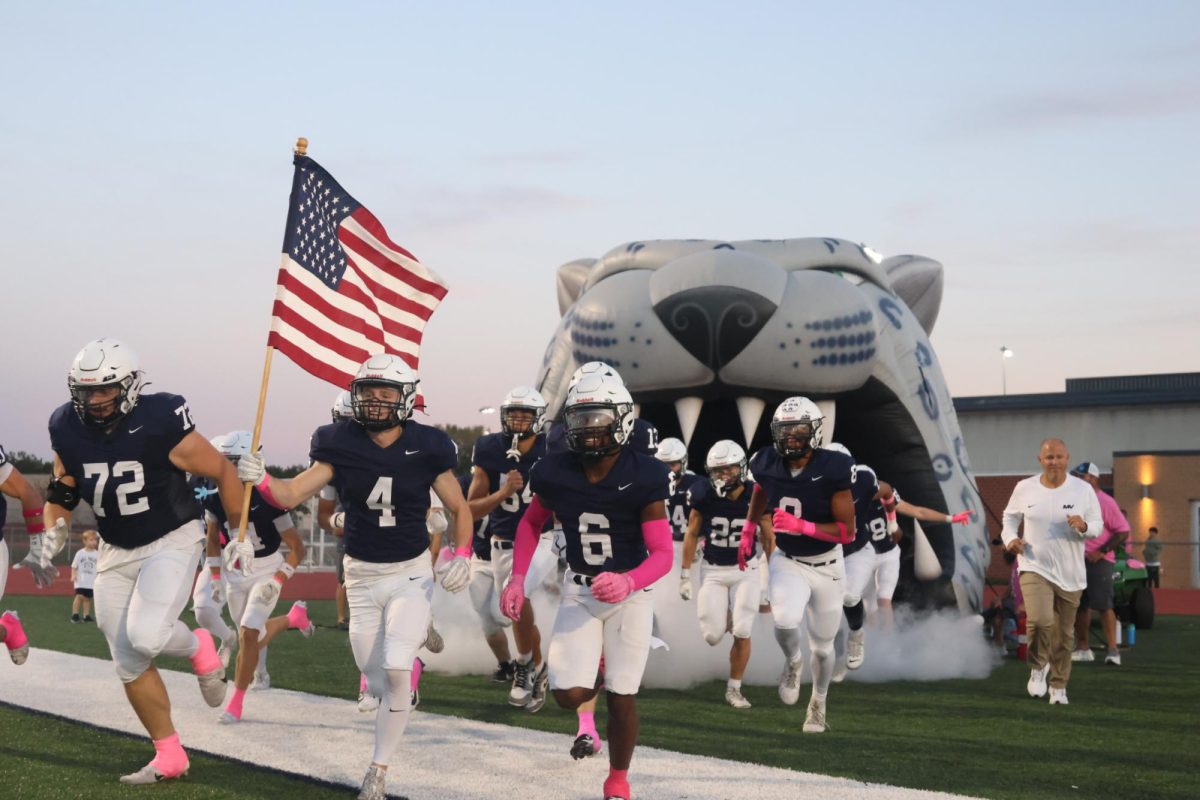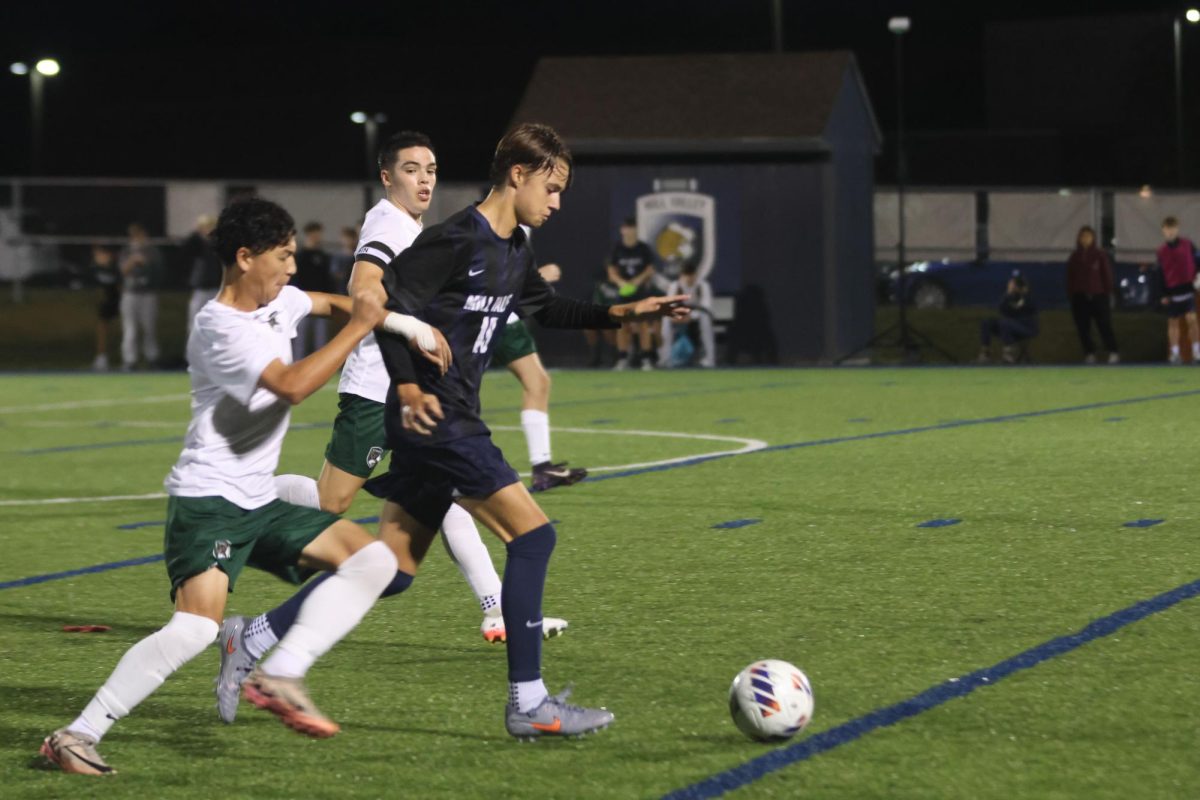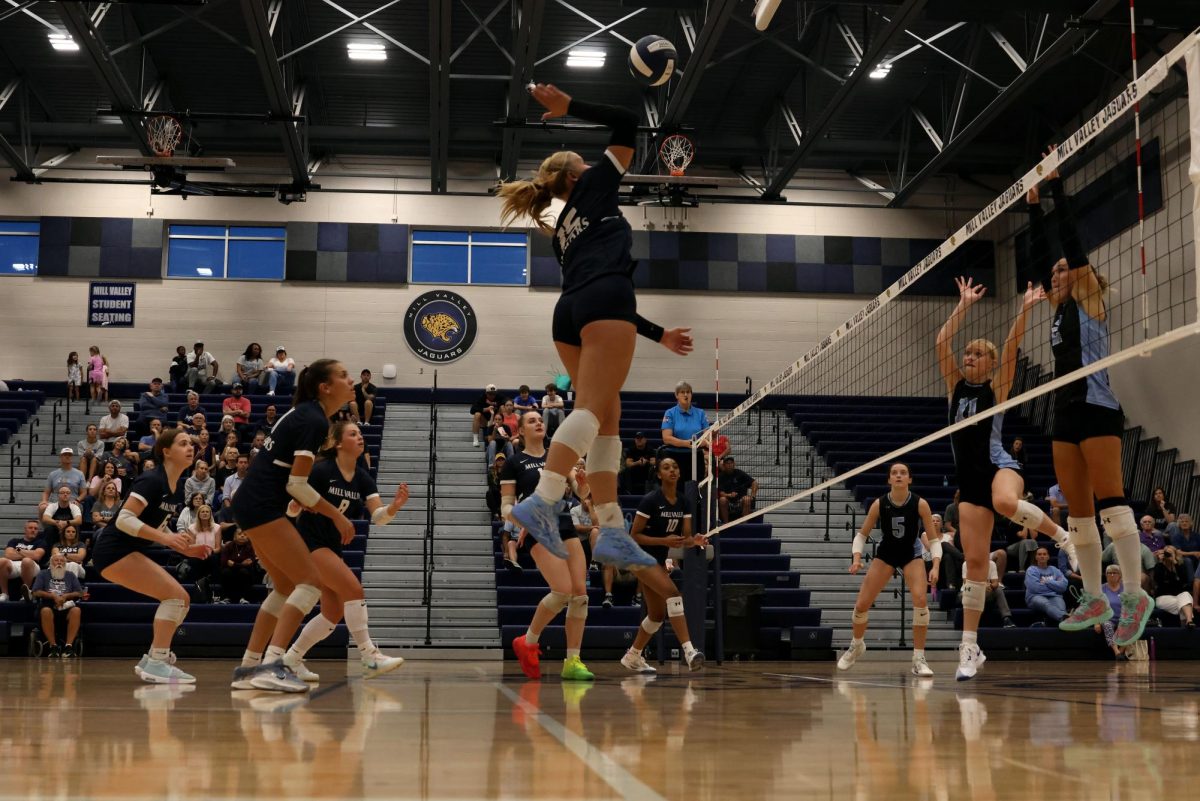Both an art and a sport, hunting is not a pastime traditionally enjoyed by many people in suburban areas, but seniors Deven Treibel and Travis Heath enjoy the uniqueness of their chosen sport.
“I started hunting when I could first hold the gun up,” Treibel said. “It’s something to wake up for, to look forward to.”
Also unique to the sport is the gear used. Depending on the wild game in question and the time of year the season occurs in, the type of equipment used to hunt widely varies.
“You could really spend a couple of grand, or even up to six or seven just for deer season,” Treibel said. “You need camouflage, scent spray, binoculars, a range finder, your fire arm, a buck knife…it all adds up.”
To offset this cost and learn the sport, hunters learn the craft from close family members or friends.
“It’s about heritage. I’ve always done it (hunting), my dad’s done it; my grandpa’s done it, and I’ll pass it down one day. It’s a family thing,” Heath said.
With a plethora of seasons including multiple opportunities to harvest both big and small game, there are plenty of sporting opportunities for families and students to look forward to. Interviewed via phone, president of the Kansas Hunter Education Instructors Association and the Hunter’s Education Coordinator for Saline County, Shannon Clarkson outlined the many possibilities in Kansas for hunters.
“While our biggest seasons is the pheasant and quail season opening Nov. 13th, and the December deer season for rifle, there are so many other good times to get outdoors and enjoy the wildlife,” Clarkson said.
Yet despite this overabundance of huntable game in Kansas, both Heath and Treibel believed that few students hunt.
“Hunting is unique. It’s not very popular because most of the people that hunt are not from around here,” Heath said, “Because we live in the city most people don’t do it or haven’t tried.”
In urban areas or otherwise, Clarkson believed that hunting as sport is actually becoming more popular citing a growing demand for hunting licenses and game tags from the Kansas Department of Wildlife and Parks. He also estimated that over 100,000 people hunt yearly in Kansas.
“More people are finding that it’s an enjoyable sport that it’s a growing sport. People are looking for a way to get outside and do different things,” Clarkson said
Reasons behind the enjoyment of the sport differs however as some hunt for sport and others hunt to harvest game. In Clarkson’s opinion many hunters combine these two reasons.
“It an adrenaline rush, just getting in your stand or blind and waiting for the right moment, being outdoors is awesome,” said Heath. “But when I do get an animal, I clean it myself and process about half of it myself…we use as much of the meat as we can.”
Many hunters use the sport for sustenance, and according to the Kansas Department of Wildlife and Parks, this practice maintains a healthy population of animals.
“Everything I shoot I eat. It’s a way of feeding my family. You try to do it as humanely as possible, if you harvest a deer, then you try to do it with one shot. You try to be as professional and humane as possible,” said Clarkson.
Commonly misconceived, according to Heath, Treibel and Clarkson, hunting is not cruel to the game harvested, and instead is an easier way to die than the slow death of starvation common to animals in overgrown populations during the winter.
“If we didn’t harvest.” Treibel said. “The animals would overpopulate and they would starve to death, it’s better they die instantly.”
“I enjoy God’s creation and if I find out I hurt something, and it didn’t go instantly, I feel sick to my stomach,” Heath said.
Learning to humanely and properly harvest game is one of the facets of the licensing and training process all hunters go through in the Kansas hunter’s education program.
“We don’t just teach people how to hunt, we teach people how to be safe while hunting,” Clarkson said. “Within hunter’s education, there is a minimum of 10 hours of instruction.”
“We practice safety and firearm handling in the classroom, we simulate hunts under professional observation and make students are at all times being safe,” Clarkson said. “Hunting takes skills, and they have to be learned and practiced…if you want a challenge, try hunting.”






